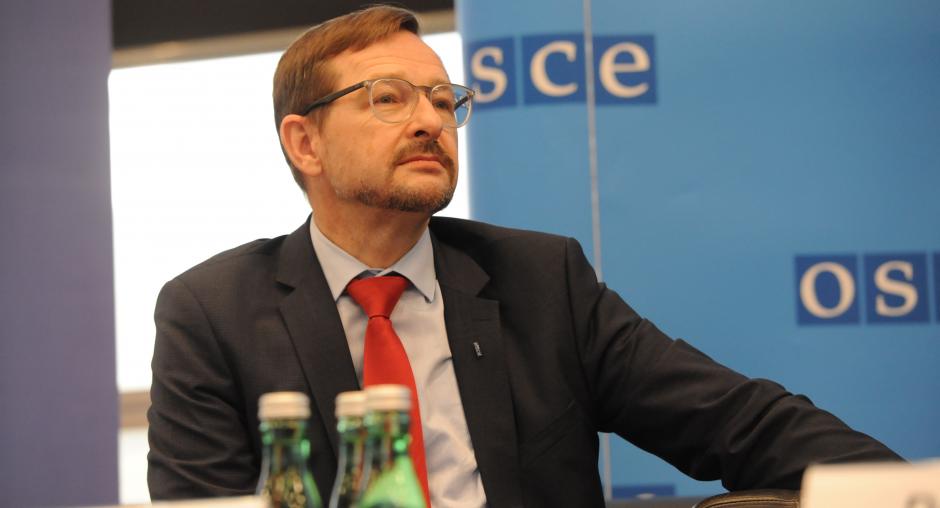COVID-19: Op-ed by OSCE Secretary General Thomas Greminger
Published in La Stampa (in Italian)
Co-operation or competition? The choices for the post-COVID-19 global order must be made now
The COVID-19 pandemic has had a huge impact on our daily lives. The priorities of states have dramatically shifted in recent weeks as governments seek to support overwhelmed health services, to protect economies, and to police lockdowns.
Such is the scale of this crisis; it will surely have long-lasting effects.
Many talk of a new global order emerging after the pandemic, similar to what was seen after the world wars of the twentieth century. I argue that this order doesn’t have to be new or revolutionary: it should be based on true multilateralism. We need to resurrect and revive our commitment to solving challenges together, and double our efforts to follow through.
Moving forward, three observations and actionable points:
- The pandemic has reminded us of our shared humanity and vulnerability. It’s a lesson to us that in a world where our biggest security challenges are global in nature and transcend boundaries – these are best addressed together.
- COVID-19 is our real enemy, for now. It’s heartbreaking and frustrating to see protagonists in regions affected by conflict unwilling to halt the fighting. It’s no surprise that one of the deadliest pandemics in history – the influenza of 1918-1920 – took a huge toll on a world already worn down by ‘the Great War’. Conflict comes at great cost to our well-being. A health emergency can be the last straw. It’s time to put the fighting into lockdown. My message to the conflict protagonists: The virus is the true enemy: put co-operation ahead of conflict, put civilians ahead of conflict.
- We must start planning for the post-COVID-19 global order now. Our short-term priority must be minimising the spread and fatalities caused by the pandemic. But the pandemic will end and we need to be ready for what comes after. Fortunately, we don’t need to reinvent the wheel – we can reinvigorate our commitment to multilateralism. The 57 states that make up the OSCE, the world’s largest regional security organization, must reaffirm our shared principles and commitments. We are at a critical juncture where one path leads to competition, rivalry, even conflict. The other path leads to co-operation, jointly working together to make the world safer. I believe states will choose co-operation. I draw comfort from history: multilateral organizations like the League of Nations and the United Nations were both born out of the horrors of the world wars; the OSCE itself was a by-product of the Cold War.
The pandemic will end, but we will continue to face security challenges on a global level. We will be stronger and better prepared when we confront these together.

